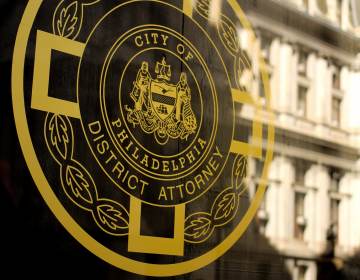GSFS students picture a future with trees as homes and robots as teachers
Author and scientific ethicist Rosalyn Wiggins Berne, who graduated from Greene Street Friends School in the late 1960s, returned for the first time last week to lead a community discussion and speak to students at the Germantown school.
Now teaching at the University of Virginia’s School of Engineering and Applied Science, where she researches the ethical issues of our scientific advances, Berne visited several classes on Friday morning.
That included the language-arts periods with the fifth and sixth graders, where the array of questions she posed kept hands waving throughout the room.
Flash-forward a half century
Berne invited fifth graders to imagine “a future not very far off” to envision what life will be like when they are her age.
When she asked students to consider medical and scientific leaps that have lengthened human longevity, several responded that 90 to 100 years is long enough for anyone to live.
Why not live to 150 or 160, Berne asked.
“Because we couldn’t do much,” one student answered.
“But what if we could create new body parts and organs?” she countered. “We’re already doing it.”
Considering longer lives
The conversation then shifted to Berne soliciting ideas from students about what would happen if people started living longer lives.
Possible problems if that scenario came true included pollution, trash and providing food, hydration and shelter for everyone.
Possible solutions? Living in trees or under the sea.
Robo-teachers
Fifth graders also discussed the pros and cons of human-like robots becoming an integral part of our daily lives.
Berne explained that, in human hands, robots already fly our planes, perform heart surgery and have replaced some workers on automotive-assembly lines.
“When is it time for people to step aside and let the machine take over?” Berne wondered.
When she asked the kids if they’d want robots as teachers, it set off simultaneous, but contradictory, choruses.
Some thought it would be great to have a teacher who knew as much as a robot could know, while others worried that human teachers would lose jobs and that social and extracurricular aspects of school would suffer.
The lost art of letters
In the sixth-grade classroom, Berne discussed the ways that communication methods have changed over the years, and how the advent of texting and Skyping has affected our brains.
When Berne asked students to name ways that we can communicate with one another, none said writing a letter.
She discussed the pervasive role of engineering in our daily lives, pointing out that “everything you see in this room, except your own body, has been engineered by human hands” from the paint on the walls and the air circulation system to desks, eyeglasses, the whiteboard and the synthetic, machine-woven rug.
“One of my majors is going to be inventive engineering,” one girl announced.
“That’ll be your only major,” Berne replied sagely of the time-consuming mission.
Berne then led the class in a discussion of the new frontier of engineering: Genetically modified plants and seeds, patented by the companies that sell them.
Sixth-grade teacher Kiri Harris then drew a connection between the modern world and the fictional realm of Lois Lowry’s “The Giver,” which the kids are currently reading.
Harris noted that a real world of globally mass-engineered products and foods would have a “creepy” similarity to “Sameness,” the book’s monochromatic setting.
The end of privacy
Harris also wondered if teenagers today, with their freedom to take mobile-phone calls on the back porch instead of stretching the family phone’s cord into the nearest closet, enjoy more privacy than past generations.
“That word won’t make any sense to your grandchildren,” Berne told the class. “They’ll say, ‘priva-what?'”
Making that case clear, one student exclaimed, “Google Maps has a picture of my house on it!”
Berne closed by telling the class that people still have the ability to decide which technological and scientific advances to pursue.
“This is still our choice, the world that we’re creating,” she said.
WHYY is your source for fact-based, in-depth journalism and information. As a nonprofit organization, we rely on financial support from readers like you. Please give today.




